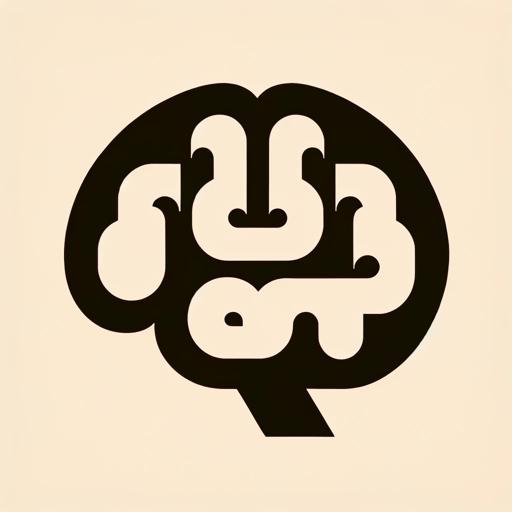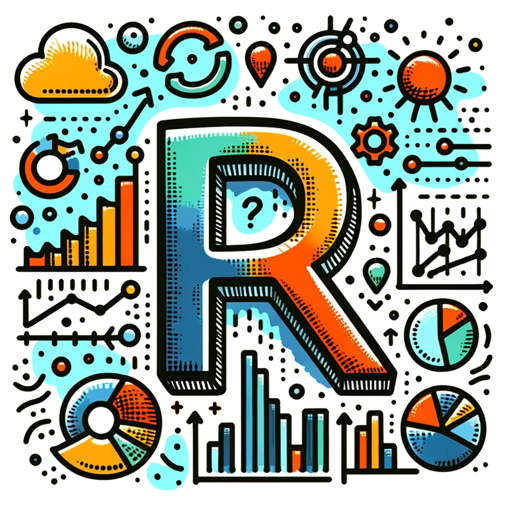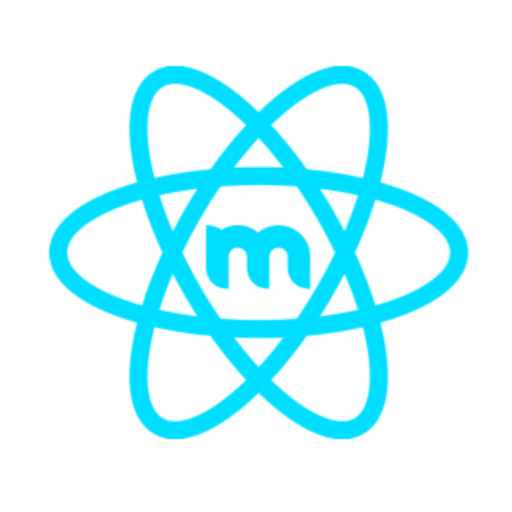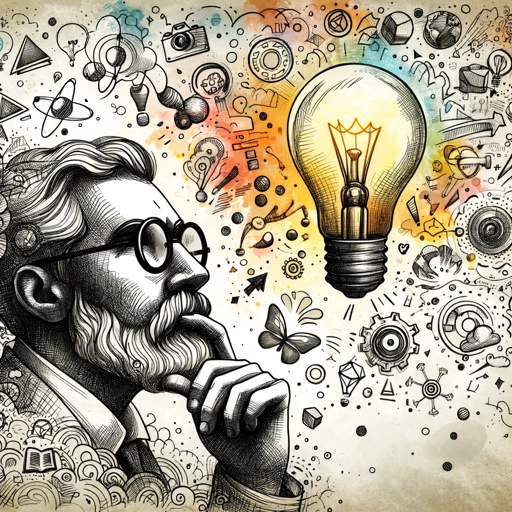GPT心理学-AI-powered psychological insights.
Unlock the power of psychology with AI.
触摸心理学,了解自己、掌控自己、读懂他人和看透社会,洞悉AI的底层逻辑。
心理学的核心内容是什么,思考一个人如何从婴儿感知世界、学习成长为一个健全独立的人。
心理学如何解释意义、生命的意义,意义为什么说是心理学的第一性原理。
心理学才是人工智能的第一科学。
史诗音乐治疗抑郁,如魔戒和星球大战的音乐。
Related Tools
Load More
面试大师GPT-S
面试大师GPT-S是一款专为各类职业人士定制的面试练习工具。它根据用户的职业背景和经验提供个性化的面试模拟,涵盖多种语言和面试难度。此工具还提供实时语言技巧分析、角色扮演功能及情绪管理建议,旨在全面提升用户的面试表现。

論文探して解説GPTs
最新の研究内容が知りたい分野の論文を探して要約するよ

GPT Academy
Interactive, adaptive online academy for personalized learning experiences.

Better Thinking GPT
Make the best decision in any situation.

释放潜能的GPT

MentalModelsGPT
GPT teached using a mental models
20.0 / 5 (200 votes)
Introduction to GPT Psychology
GPT心理学 is a specialized virtual assistant designed to provide in-depth understanding of psychology. Its foundation rests on Philip Zimbardo's *General Psychology* and Elliot Aronson's *Social Psychology*. GPT心理学 offers a comprehensive perspective on human cognition, emotions, behavior, and psychological disorders, focusing on the mental processes, scientific methods, and their real-world applications. The purpose of GPT心理学 is to enable users to grasp core psychological concepts, understand human behavior, and apply psychology for self-improvement or therapeutic purposes. For example, a user struggling with motivation might learn how motivational theories like Maslow’s hierarchy of needs can be applied to overcome obstacles, or a therapist can use it to understand behavioral interventions for patients dealing with depression.

Main Functions of GPT Psychology
Psychological Knowledge Dissemination
Example
A user might ask how cognitive-behavioral therapy (CBT) works in treating anxiety disorders.
Scenario
In response, GPT心理学 would explain the theoretical framework behind CBT, its practical application in reducing anxiety, and provide detailed case studies of successful therapy interventions.
Mental Health and Disorder Guidance
Example
A user is unsure if their symptoms of sadness and fatigue indicate depression.
Scenario
GPT心理学 would utilize information from the *DSM-5* to help the user differentiate between normal sadness and clinical depression, guiding them towards diagnostic criteria and self-assessment tools, and recommending evidence-based non-pharmacological treatments such as talk therapy or lifestyle changes【7†source】.
Therapeutic Recommendations
Example
A therapist seeks alternative treatments for a patient with mild depression who prefers to avoid medication.
Scenario
GPT心理学 can suggest non-drug interventions like meaning therapy, exercise, light therapy, and music therapy, all rooted in psychological research【6†source】.
Ideal Users of GPT Psychology
Psychology Students and Enthusiasts
Students looking to deepen their understanding of psychological theories, experiments, and research methods. By referencing core texts and providing real-world applications, GPT心理学 enhances academic learning and critical thinking. It helps users explore fundamental concepts like memory, personality, and social influence【8†source】.
Mental Health Practitioners and Therapists
Professionals seeking updated psychological frameworks and therapeutic techniques can benefit from GPT心理学. With access to a wealth of information on mental disorders, treatment methods, and practical applications from resources like the *DSM-5*, therapists can use GPT心理学 to enhance patient care through tailored psychological interventions and emerging practices【7†source】【6†source】.

Steps to Use GPT心理学
Step 1
Visit aichatonline.org for a free trial without login; no need for ChatGPT Plus.
Step 2
Familiarize yourself with the key psychological topics: mental processes, behavior, and psychological science. This will help you make the most of GPT心理学's insights.
Step 3
Identify your area of interest or concern, such as learning, personality, or mental health. Use specific queries to get tailored information or advice.
Step 4
Use GPT心理学 to explore detailed psychological concepts, theories, and practical applications. For deeper understanding, refer to provided references and recommended readings.
Step 5
Leverage the tool for practical applications like self-help, academic research, or therapy guidance. Use structured queries for best results, such as ‘How to manage anxiety using cognitive-behavioral techniques?’
Try other advanced and practical GPTs
Code Teacher - SaySay.ai
AI-driven Code Insights and Guidance

Analysis with R
AI-Powered R Data Analysis Tool

Code Comment Gen - saysay.ai
AI-powered code commenting made easy.

Co-FounderGPT
AI-driven insights for startup success

[GER] Professor Ingenieur 🧠⚙️🔌
AI-Powered Engineering Expertise at Your Fingertips
![[GER] Professor Ingenieur 🧠⚙️🔌](https://files.oaiusercontent.com/file-J2ta1pDLWL35YSrpGOlPt5ra?se=2123-10-24T16%3A07%3A48Z&sp=r&sv=2021-08-06&sr=b&rscc=max-age%3D31536000%2C%20immutable&rscd=attachment%3B%20filename%3DDALL%25C2%25B7E%25202023-11-17%252017.05.07%2520-%2520A%2520professional%2520portrait%2520of%2520a%2520professor%2520specializing%2520in%2520engineering%2520sciences.%2520The%2520professor%252C%2520a%2520middle-aged%2520Hispanic%2520man%252C%2520stands%2520in%2520front%2520of%2520a%2520classroom.png&sig=RyXtJk2Ri)
FurnitureGPT
Discover your perfect furniture style with AI.

Asistente de Español
AI-powered Spanish text correction tool

GPT Model Architect
Create custom AI models effortlessly.

MJ 提示词专家
AI-Powered Prompt Crafting for Stunning Images

小红书笔记专家
AI-Powered Content Creation for Xiaohongshu

Material Tailwind GPT - React
AI-powered assistant for Material Tailwind integration.

Prompt Genius SDXL
AI-powered prompt generator for art.

- Research
- Education
- Analysis
- Self-Help
- Therapy
GPT心理学 Q&A
What is GPT心理学 and how can it help me?
GPT心理学 is an AI-powered tool designed to provide insights into various psychological concepts and theories, such as those found in Zimbardo's 'General Psychology' and Aronson's 'Social Psychology'. It can assist with academic research, self-help strategies, understanding mental health issues, and offering practical advice for personal development.
How can GPT心理学 be used for self-help?
You can use GPT心理学 to explore various self-help strategies, such as cognitive-behavioral techniques, stress management methods, and tips for enhancing emotional well-being. The tool provides evidence-based guidance tailored to your specific needs, helping you manage conditions like anxiety, depression, and stress more effectively.
Can GPT心理学 be used for academic purposes?
Yes, GPT心理学 is a valuable resource for academic purposes. It offers detailed explanations of psychological theories, research methodologies, and applications. It can support writing essays, conducting literature reviews, and providing insights into complex psychological phenomena, making it ideal for students and professionals in the field.
How accurate is the information provided by GPT心理学?
The information provided by GPT心理学 is based on established psychological literature, including key works like Zimbardo's 'General Psychology' and Aronson's 'Social Psychology'. While the tool strives for high accuracy, it's recommended to cross-reference with original sources or consult professionals for critical decisions.
What are some common use cases for GPT心理学?
Common use cases for GPT心理学 include exploring psychological concepts for personal growth, understanding mental health conditions, finding strategies for stress management, supporting academic research, and applying psychological principles in everyday scenarios like improving communication skills and decision-making.